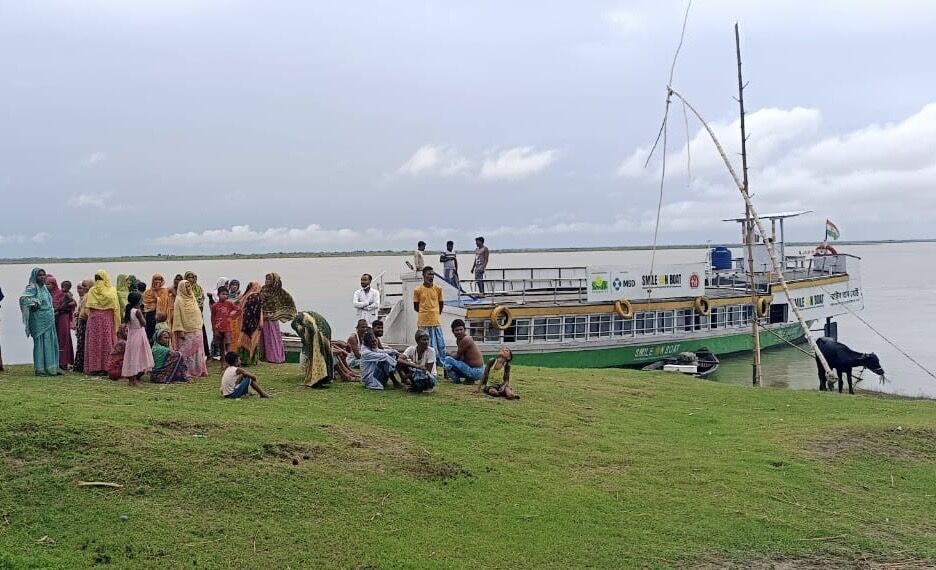It used to be simple, didn’t it?
You were told—sweetly, sharply, or with the ferocity of a middle-class parent who’d seen too much disappointment—that your destiny lay in becoming a doctor, an engineer, or if your handwriting was particularly elegant, a government officer. Careers weren’t choices; they were inherited burdens, passed down like wedding silver.
We didn’t so much choose our professions as fall into them, like open manholes.
But the world, as it’s inclined to do, shifted. It got louder, faster, and oddly more opinionated. Suddenly people were making a living designing cartoon avatars, managing social media meltdowns, or filming monkeys for documentaries watched by twelve million people in Denmark. Careers now came with adjectives: hybrid, remote, agile, gig-based, AI-driven.
And into this whirling, chattering void of possibility, we push our young people with a pat on the back and a panicked “figure it out.”
What we forget, what we always forget, is that they’re overwhelmed. They aren’t choosing between law and medicine anymore. They’re choosing between 4,000 courses, 5,000 certifications, and a gnawing sense that one wrong step might ruin their entire twenties.
The overwhelm is real
A study by the IC3 Institute and FLAME University tells us what our gut already knows: nearly a third of students in India have either no access to counselling or no structured support at all. And for those who do? Well, it’s often a five-minute conversation wedged between exam prep and a lecture on the dangers of TikTok.
The truth is, no matter how much the world has changed, we haven’t quite caught up in how we prepare young people for it. We hand them infinite options and then judge them for feeling paralysed. It’s a bit like tossing someone into a library and demanding they pick the one book they’ll read forever.
What they need isn’t more options. It’s guidance. Context. A mirror and a map.
Career counselling: The compass in the chaos
What real, thoughtful career counselling does is deceptively simple. It says:
“Let’s stop. Let’s talk about you. Not your cousin. Not your neighbour’s son. You.”
It begins with self-awareness, that slippery thing most of us don’t develop until we’ve already made our worst mistakes. Through assessments and conversations—not interrogations—counsellors help students uncover their interests, strengths, blind spots, and ambitions they’re half-afraid to say aloud.
Then comes the exploration phase—that glorious moment where a teenager finds out “marine biologist” is a real job, or that psychology doesn’t mean becoming a psychiatrist, or that data science might be the new architecture.
After the spark, comes the scaffolding. Counsellors work with students to set goals, plot academic journeys, shortlist courses and colleges, decode scholarships, and help them understand what’s actually required to walk the path they’ve just chosen. This is not YouTube advice. This is curated, focused, real-life planning.
And it doesn’t stop at planning. Good counselling provides ongoing support—through application deadlines, form-filling panic, interviews, confusion, heartbreak, and do-I-even-want-this-anymore moments. In other words, they stay.
They do what family often can’t and Google never will: they listen, they guide, and they stay.
Why career counselling matters more than ever
Today, choosing a career is not just about picking a subject in school or college. It’s about understanding:
- What am I good at?
- What skills are needed in the real world?
- Will this job still exist in ten years?
- What education or experience will get me there?
Career counselling provides a safe space to explore these questions. In a world shaped by AI, automation, the gig economy, and fast-evolving job roles, professional guidance can mean the difference between an aligned, fulfilling path, and years spent drifting from one career to another.
Beyond skill alignment, counsellors help cut through the noise created by:
- Peer pressure
- Societal expectations
- Parental fears
- Misinformation online
When students are provided a structured framework for reflection, they move from uncertainty to action.
Smile Foundation: Making career counselling accessible to all
While urban schools may have the privilege of trained counsellors and international career exposure, the same cannot be said for underserved communities. This is where Smile Foundation’s career counselling initiatives steps up.
Through its flagship Smile Twin e-Learning Programme (STeP), Smile Foundation provides career-focused interventions to youth from low-income communities across India. The programme offers:
- Career counselling sessions in government and low-resource schools.
- One-on-one mentorship for young people preparing for employment.
- Life skills, digital literacy, and workplace readiness training.
- Strategic partnerships with private sector companies to deliver industry-aligned guidance.
Smile Foundation also incorporates career awareness in its broader education initiatives like Shiksha Na Ruke, She Can Fly, and Tayyari Kal Ki, ensuring that children and youth—especially girls—are not only educated, but empowered to dream and plan for sustainable careers.
In classrooms where the idea of “career” once felt distant, career counselling has brought direction, dignity, and hope.
How career counselling helps – A 4-step journey
1. Self-awareness
The first step to a meaningful career is understanding oneself.
Career counselling often begins with psychometric tools, aptitude assessments, and reflective exercises to help students identify:
- Strengths and weaknesses
- Interests and motivations
- Work style preferences
Self-awareness lays the foundation for confident choices and helps students resist the pressure to “follow the herd.”
2. Exploration of options
With thousands of career paths available, a professional counsellor becomes a critical bridge between student potential and real-world opportunities.
Whether it’s choosing between journalism and design, or exploring lesser-known fields like environmental law or UX writing, counsellors help students:
- Understand course and college options
- Know what skills are required
- Learn about industry trends and job scopes
For youth in Smile Foundation programmes, this phase often becomes the first time they hear that their passion can become a profession.
3. Goal-setting and preparation
After clarity comes action.
Career counselling includes setting short- and long-term goals and creating personalised academic or vocational roadmaps, including:
- College applications and entrance exams
- Financial planning and scholarship identification
- Skill-building courses, internships, or volunteering
Smile Foundation also guides students through training modules, communication skills, and industry exposure visits, enabling them to step into the workforce with confidence.
4. Implementation and ongoing support
The final stage is bringing it all together—executing the plan, and staying responsive to change.
Counsellors support students through:
- Admissions
- Form filling and documentation
- Interview preparation
- Dealing with rejection or reevaluation
What makes this guidance unique is that it doesn’t end with a test score or a college list—it continues as a relationship.
Levelling the playing field
While the need for career guidance is universal, access is not. Urban private schools often have entire teams dedicated to college and career counselling, while students in government or low-income schools rely on luck, instinct, or hearsay.
By integrating career counselling into its education and skilling programmes, Smile helps break generational cycles of poverty by turning learning into livelihood.
Their impact is not only in the number of students trained, but in:
- The girls who choose engineering over early marriage
- The boys who discover design instead of defaulting to manual labour
- The first-generation learners who now mentor others
Why the future depends on career counselling
The future of work is dynamic. Roles that didn’t exist five years ago, like AI prompt engineers or sustainability analysts, are now in high demand. At the same time, core skills like communication, creativity, and collaboration are becoming more valuable than ever.
Career counselling empowers young people to make decisions not based on survival, but on self-knowledge and aspiration.
By integrating career guidance into education systems, formal or non-formal, we give students the tools to navigate complexity with confidence. And by investing in organisations like Smile Foundation, we ensure that this clarity isn’t just for the privileged, but for every child with a dream.
In conclusion: Guidance is the new equity
Career confusion is normal, but staying confused shouldn’t be.
When we invest in career counselling, we invest in clarity, confidence, and choice. We help build futures that are not just employable but empowered.
And for thousands of young people in India, Smile Foundation is making that possible—one counselling session at a time.










